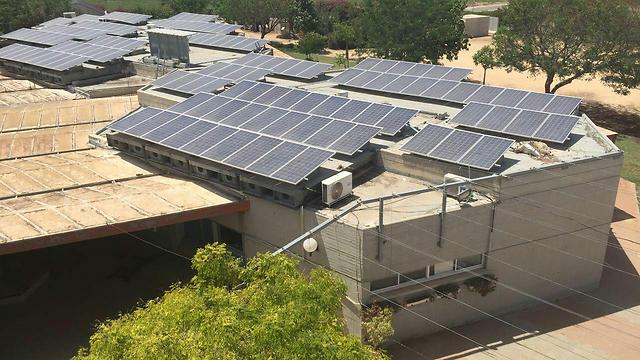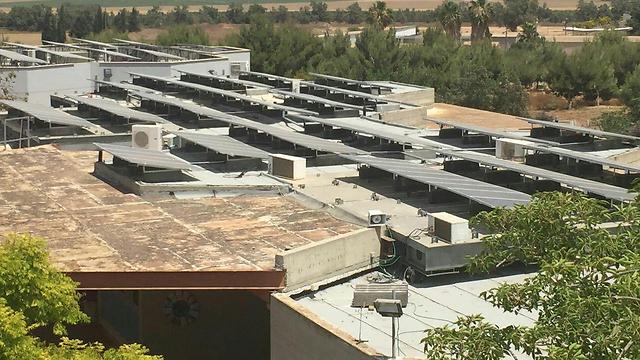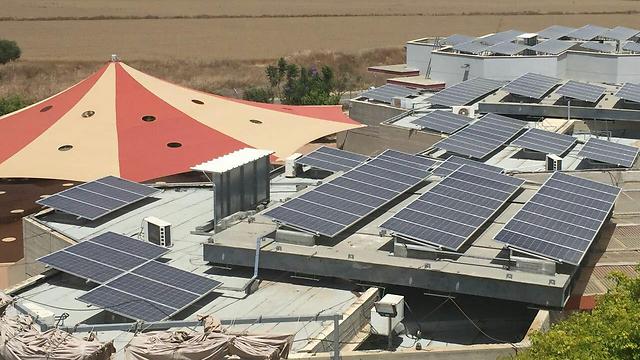Nitzanei Eshkol elementary school near the Gaza border has completed construction of a solar power network that completely meets all the school’s needs.
By Matan Tzuri
This week, Nitzanei Eshkol, an elementary school in the Eshkol Regional Council near the Gaza Strip, began operating an electrical system powered entirely from solar energy. This system is expected to meet the school’s energy demands in their entirety.

View of the school’s solar panels
After long months of planning and installing solar panels, the construction ceased this week, and connecting the new system was successfully completed. The environmentally conscious school’s pupils led the excitement: the first through sixth grades had been observing the process and learning about the environmental benefits of using solar energy for electricity.
The project was an initiative of the Eshkol Regional Council with the intention of saving energy and also to cut costs for running what is defined as a “green school.” In future, the Nitzanei Eshkol will add academic programs on the subject to their curriculum.

The secretary of the regional council, who was a partner in promoting the project, said, “It’s the first school in the country that set up a solar electrical system. The meaning is that, with this system, we’re making electricity for ourselves and also transferring it to the Israel Electric Corporation, which they’re offsetting. In practice, we’re making the electricity for the electric company, and we’re getting it back. This is much more economical and certainly greener. We’re preventing greenhouse gas emissions.

“On Monday, we completed the transfer process, the initiative began functioning, and everything is working. There’s an educational message in this process. This is a school that’s a green school that deals with ecology, environmental protection, recycling, and more.”

View of the school’s solar panels
The system erected by Shahar Energy is supposed to have a capacity of 230 kWh.
The company’s CEOs, Zeevik Peretz and Lazar Rothstein, said, “The project will encourage additional regional councils to produce their own electricity instead of buying it from the Israel Electric Corporation, to help the environment and to earn a lot of money. The Eshkol Regional Council has built 8.5-million-shekel facilities. Another school in the council, Nofey-Habsor, in which a system with a 630-kW capacity will be installed, will be erected in the coming summer months.”
View original Ynet publication at:
http://www.ynetnews.com/articles/0,7340,L-4814277,00.html






 Israeli New Shekel Exchange Rate
Israeli New Shekel Exchange Rate